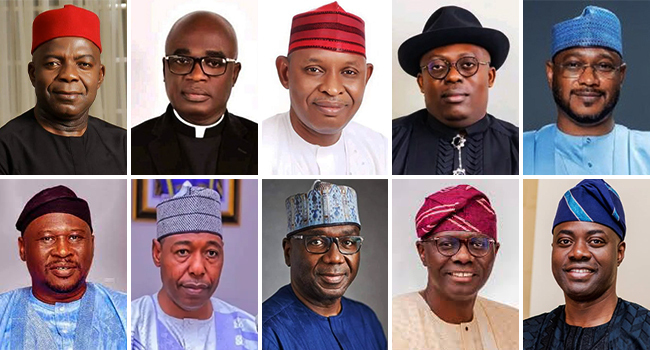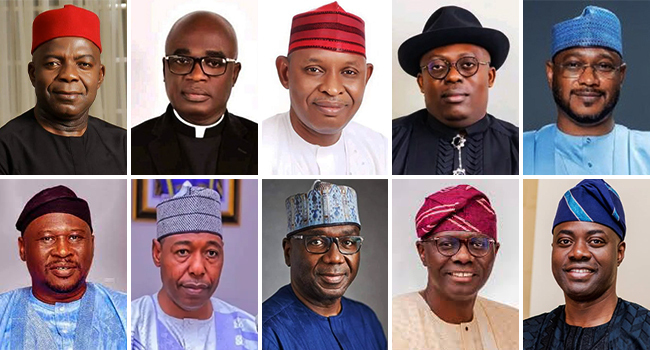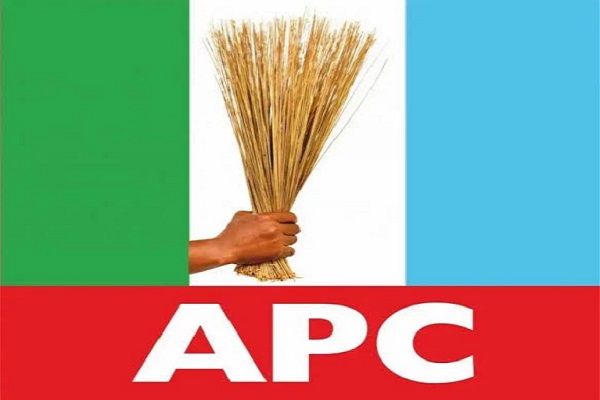As the nation anticipates the introduction of a new minimum wage bill by President Bola Tinubu, concerns arise over the potential financial strain on many states. The Federal Executive Council recently deferred a memorandum on the tripartite committee's minimum wage report to allow further consultations among federal, state governments, the private sector, and labor unions.
Last Thursday, Tinubu convened with governors at the National Economic Council, chaired by Vice President Kashim Shettima, to deliberate on the national minimum wage. The meeting, however, did not confirm if the issue was addressed. Subsequently, the Southern Governors’ Forum released a communiqué advocating for state-level negotiations of the minimum wage.
Labor unions have criticized the Nigeria Governors’ Forum for their influential role in minimum wage negotiations. The NGF report, "Analysis of State FAAC Inflows and State Expenditure Profile," warned that implementing the new minimum wage could bankrupt states due to increased recurrent expenditures. In 2022, states like Abia, Ekiti, Gombe, Imo, Katsina, Kogi, Oyo, Plateau, Sokoto, Yobe, and Zamfara already faced deficits.
READ ALSO
Nigeria Governors’ Forum Assures Labour of Improved Minimum Wage Amid Ongoing Negotiations
Labour Movement Pushes for New Minimum Wage by End of Next Month
The recommended N62,000 minimum wage, more than double the current N30,000, could leave only a few states financially stable. For instance, the report highlighted that Abia's employment size of 58,631 workers results in a monthly wage bill of N5.8 billion. Other states like Bayelsa, Delta, and Lagos also face significant financial burdens, with monthly recurrent expenditures ranging from N10.5 billion to N621 billion.
In 2022, Lagos had the highest revenue at N1.24 trillion, with a recurrent expenditure of N621 billion. Conversely, states like Kebbi had the lowest revenue at N92 billion, with a recurrent expenditure of N57.6 billion. Additionally, some states demonstrated poor internally generated revenue (IGR), with Zamfara generating only N6.5 billion and Kebbi N8.6 billion.
Despite the federal mandate, 15 states have yet to implement the N30,000 minimum wage signed into law in 2019. A report by BudgIT revealed that the cumulative personnel cost for all 36 states grew by 13.44% to N1.75 trillion in 2022, with IGR increasing by 12.98% to N1.82 trillion. However, 17 states experienced a decline in their IGR from the previous year.
NLC Assistant General Secretary, Chris Onyeka, accused several states of flouting the Minimum Wage Act, listing Abia, Enugu, Bayelsa, Delta, Nasarawa, Gombe, Adamawa, Niger, Sokoto, Imo, Anambra, Taraba, Benue, and Zamfara. However, Enugu's TUC chairman, Ben Asogwa, clarified that the state has implemented the N30,000 minimum wage since February 2020, with recent adjustments for local government workers and primary school teachers.
Zamfara Governor, Dauda Lawal, announced that the state would begin paying the N30,000 minimum wage effective June 2024. The impending new minimum wage poses a significant financial challenge for many states, potentially leading to increased deficits and financial instability.





One thought on “New Minimum Wage: NGF Reveals Financial Strain May Push Many States Towards Bankruptcy”